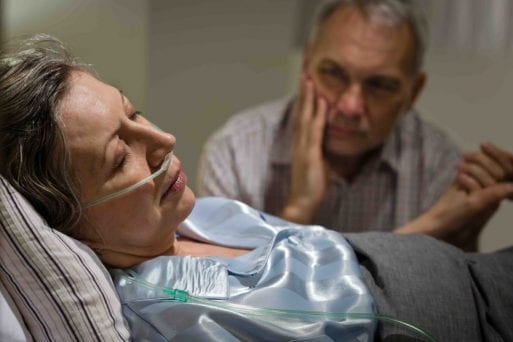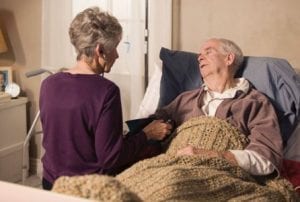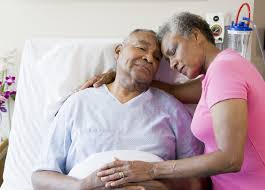
Credit:homecaregenerations.com
Spousal caregivers are largely fending for themselves, according to a new study published in the June issue of Health Affairs. The study concludes that the focus of serious-illness care should ideally “expand from the patient to the family unit.”
Caregiving for a loved one who is dying is an onerous task. It’s arguably even more stressful, depressing, tiresome, etc. when it’s the person you’ve chosen to spend your life with. Spousal caregivers are also more likely to provide care by themselves compared to other kinds of caregivers.
The report notes that spouses are certainly not the only caregivers within the family unit during a person’s last years of life. However, spouses do generally experience more burden and depression than other family members. This is particularly true regarding anxiety about loss and negative occurrences following bereavement.
The kind of stress that impacts spousal caregivers is also unique.
“Spousal caregivers need to simultaneously fulfill their supportive roles and manage the burden brought about by the demands of caregiving,” reads the report. “Caregiving spouses are less likely than other family caregivers to hire paid caregivers or use community services…Additionally, bereavement itself is associated with negative consequences for spouses, including not only increased mortality, but also reduced personal health maintenance and increased health care expenditures.”
Study Sample
The researchers gleaned their information from the Caregiving for a loved one, an ongoing program conducted by the University of Michigan. HRS participants are interviewed face-to-face or via telephone every two years about a wide range of topics. Every participant is 51 years old or older.

Credit:thefiftypluslife.com
If a participant is married or living with a partner (both a “spouse” for the study’s purpose), then that partner is also involved in the questioning/survey. The HRS subsequently identifies any participant who has died since the last interview cycle. Post-death interviews are also conducted with either the surviving spouse or someone else familiar with the person who died. Surviving spouses remain in the study, participating in interviews after their loved one’s death.
The information used for the spousal caregivers’ paper is from 2000 to 2014. The study focused on people who were married when they died. Ultimately, the study concentrated on 1,205 couples in which the ill person needed assistance with one or more household activities at the last interview before they died.
Results
Spousal caregivers were the only caregivers for 55 percent of the 1,205 decedents identified in the study. Thirty-six percent of the 1,205 were assisting their spouse with outside support. “Among spouses who received support,” reads the report, “two out of three were helped by their children, 40 percent received paid help, and 11 percent received support from other family or friends.”
The remaining nine percent of the 1,205 provided no task-oriented support to their spouse who was dying. Of those, 66 percent were themselves in poor or fair health, 40 percent dependent for daily living activities, and more than half were hospitalized within the past two years.

Credit: ineedgreatcare.com
Clearly, spousal caregivers frequently serve as the primary caregiver for their spouse during their final days, months or years. Many times the caregivers themselves are ailing, making the whole situation stressful and potentially tumultuous. And still, a majority do not have any meaningful outside help for self-care or basic household tasks.
“As the health care landscape in the U.S. evolves to better meet the needs of seriously ill people through the continued growth of hospice and palliative care programs and the expansion of other home and community-based services,” the report reads, “there is an imperative to support the family caregivers who provide care at home.”

 Spousal Caregivers Are a Lonely Bunch
Spousal Caregivers Are a Lonely Bunch


 How Dare You Die Now!
How Dare You Die Now!

 “Help Me, Helen”
“Help Me, Helen”














